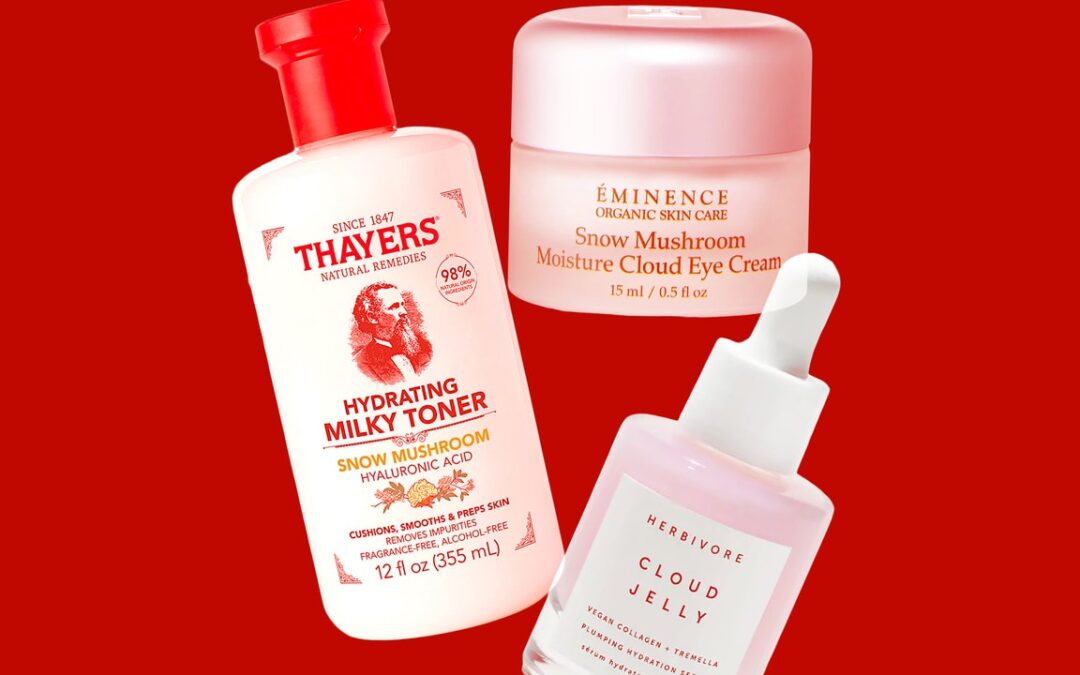Add this to your skin-care vocabulary: Tremella fuciformis, also known as snow mushroom. It sounds like something you’d stumble upon in a mystical forest, and yes, it is a fungus, but it looks more like a white gelatinous flower than a mushroom. It’s commonly used in traditional sweet Chinese foods (like snow fungus soup) and has also been a staple ingredient in Asian medicine and skin care for thousands of years.
Now, it’s popping up as an active ingredient in skin-care products in Western beauty, and it’s even been labeled as the next hyaluronic acid for its hydrating properties.
What exactly is snow mushroom?
This ingredient’s skin-care origins go as far back as the imperial Tang dynasty for creating a youthful, supple appearance, according to cosmetic chemist Ginger King. Modern science can explain why: King says silver ear mushrooms, yet another name for Tremella fuciformis, have the ability to boost skin hydration when ingested.
“Due to the gelatinous structure and high amount of polysaccharide, it has been used in skin care to provide hydration, as well,” she tells Allure.
What are the benefits of snow mushroom?
Board-certified dermatologist Dendy Engelman, MD, the director of dermatologic surgery at Metropolitan Hospital in New York City, says the fungus acts similarly to that of hydration powerhouse hyaluronic acid by pulling moisture to the skin. Hyaluronic acid can hold up to 1,000 times its weight in water, so finding an all-natural match for its hydrating power is pretty major.
And snow mushroom has an extra edge. “The particles are smaller than hyaluronic acid, so it penetrates the skin more easily,” says Dr. Engelman. She cautions, however, that she wants to see more targeted studies on the ingredient’s skin-care properties before she hails it as a magic mushroom for moisture.
With that being said, board-certified dermatologist Hadley King, MD, who is based in New York City, notes that this mushroom — like most mushrooms, in general — is rich in fatty acids, which also help with moisture retention while stabilizing your skin barrier. “Mushrooms are also rich in vitamins A, [also known as retinol], C, and D and have antioxidant and anti-inflammatory properties,” she says.

